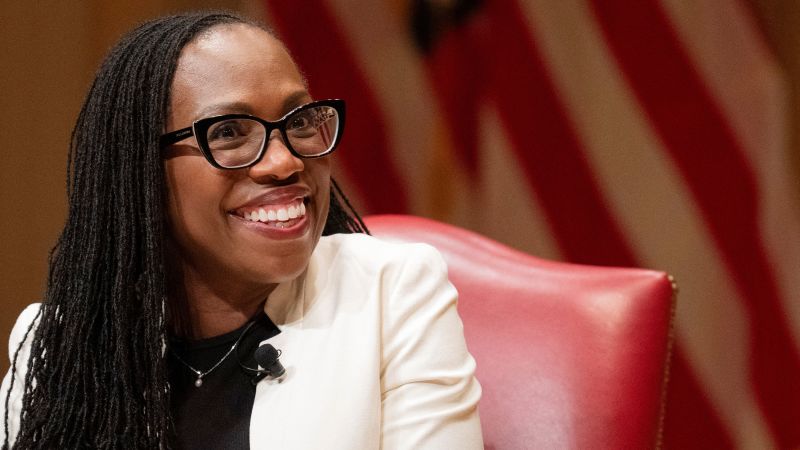The U.S. Supreme Court recently issued a significant ruling that allows President Donald Trump to advance his plans for a substantial reduction of the federal government. Justice Ketanji Brown Jackson, the court’s most junior member, expressed strong dissent against this decision, illuminating her emerging role as a prominent voice in the court’s ongoing dynamics. Jackson’s dissent highlights her concerns regarding the court’s treatment of executive power, particularly in the context of Trump’s administration.
Jackson’s Dissent Echoes Concerns Over Executive Power
The ruling, handed down on March 5, 2024, permits the White House to proceed with its plans, which had been contested by various unions claiming these reductions infringe upon Congress’s authority to establish governmental departments. In her dissent, Jackson criticized the court for its lack of caution and scrutiny, asserting, “Today, the court exercises neither caution nor scrutiny… and once again leaves the people paying the price for its reckless emergency-docket determinations.”
Jackson’s remarks underscore her commitment to a more cautious approach to the balance of power between the executive and legislative branches. Her critique reflects broader concerns about the potential overreach of presidential authority, particularly as Trump continues to shift administrative priorities.
In a terse order from the majority, the court stated that the only actions being considered were an executive order and a memorandum from the White House. The majority contended that since no specific reduction plans were formally on the table, lower courts had acted prematurely by halting Trump’s initiatives. Justice Sonia Sotomayor, a senior member of the court’s liberal wing, agreed with the majority but acknowledged Jackson’s concerns about restructuring federal agencies contrary to congressional mandates.
Jackson’s Prolific Contributions and Dissenting Opinions
Since her appointment by President Joe Biden in 2022, Jackson has established herself as one of the court’s most prolific justices. In the term that concluded last month, she authored 24 opinions, ranking second in productivity behind only the court’s conservative stalwart, Clarence Thomas, who penned 29. Her writings have often sparked significant discussion, particularly her dissent in a recent case that limited the power of lower courts to issue temporary orders against presidential policies.
In that dissent, she warned against fostering a culture of disdain for lower courts, stating, “the court’s complicity in the creation of a culture of disdain… will surely hasten the downfall of our governing institutions.” This sentiment reflects her broader apprehensions about the implications of the court’s decisions on the rule of law.
Jackson’s assertive stance was also evident in her dissent regarding a ruling that favored fuel producers, where she remarked that the court’s decision suggested “moneyed interests enjoy an easier road to relief in this Court than ordinary citizens.” Such statements underscore her commitment to advocating for equitable treatment within the judicial system.
Moreover, in a case concerning Planned Parenthood‘s ability to sue South Carolina over the state’s decision to terminate Medicaid funding, Jackson engaged in a pointed exchange with Thomas. She argued that the ruling undermines civil rights protections established during the Reconstruction Era, emphasizing that it would deprive vulnerable Medicaid recipients of their rights.
Jackson’s growing influence in the Supreme Court highlights her dedication to addressing complex legal issues with clarity and conviction. As the court navigates a landscape shaped by Trump’s presidency, her dissenting opinions serve as a critical counterbalance to the prevailing majority, advocating for a more restrained exercise of executive power.







































































